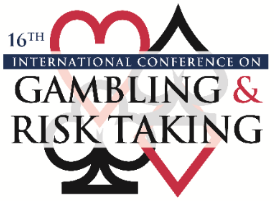Submission Title
Champagne Socialists
Session Title
Session 2-3-F: Gaming Policy in Europe: Case Studies
Presentation Type
Event
Location
The Mirage Hotel & Casino, Las Vegas, Nevada
Start Date
8-6-2016 2:00 PM
End Date
8-6-2016 3:30 PM
Disciplines
Arts and Humanities | Cultural History | Economics | European History | Gaming and Casino Operations Management | History | International Business | Labor History | Legal | Political History | Social History | Sociology
Abstract
The British casino industry was effectively controlled and regulated by the 1968 Gaming Act and the Gaming Board for Great Britain between 1970 and 2005. The Gaming Act itself has been acknowledged by many observers as a model for the regulation of casinos worldwide. However, the motive for the Act’s introduction by the British Labour Government, a socialist administration, has not been the subject of realist evaluation.
This paper aims to open up a debate on the particular nature of socialist regulated casino industries with a comparison of the British casino industry at the time of the Act’s introduction to that of the lesser known Yugoslav casino industry. The applauded principle of ‘unstimulated demand’ which was a cornerstone of 1968 Act will be reassessed and compared to the approach of Yugoslav authorities to their own industry. This paper will focus on the period between 1970 and 1978, a period of assumed ‘good practice’ by British casino operators.
In conclusion, although assumptions should be avoided, a new politically realistic interpretation of the principle of ‘unstimulated demand’ shall be suggested.
Keywords
Gaming Act, Gaming Board, casinos, labour, government yugoslavia, yugoslav, socialist, unstimulated demand, regulation
Streaming Media
Champagne Socialists
The Mirage Hotel & Casino, Las Vegas, Nevada
The British casino industry was effectively controlled and regulated by the 1968 Gaming Act and the Gaming Board for Great Britain between 1970 and 2005. The Gaming Act itself has been acknowledged by many observers as a model for the regulation of casinos worldwide. However, the motive for the Act’s introduction by the British Labour Government, a socialist administration, has not been the subject of realist evaluation.
This paper aims to open up a debate on the particular nature of socialist regulated casino industries with a comparison of the British casino industry at the time of the Act’s introduction to that of the lesser known Yugoslav casino industry. The applauded principle of ‘unstimulated demand’ which was a cornerstone of 1968 Act will be reassessed and compared to the approach of Yugoslav authorities to their own industry. This paper will focus on the period between 1970 and 1978, a period of assumed ‘good practice’ by British casino operators.
In conclusion, although assumptions should be avoided, a new politically realistic interpretation of the principle of ‘unstimulated demand’ shall be suggested.

Comments
Audio recording of this presentation is attached as a downloadable MP3 audio file, 71.9 MB
This presentation begins at 36:45